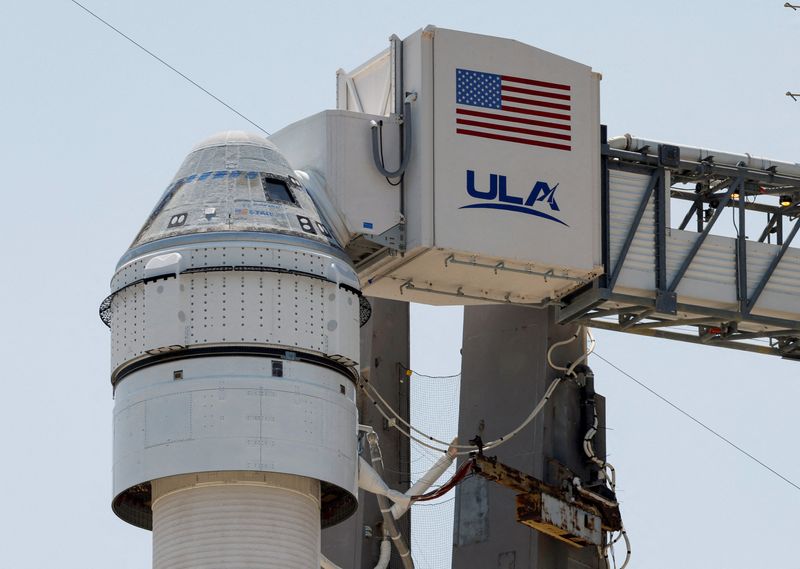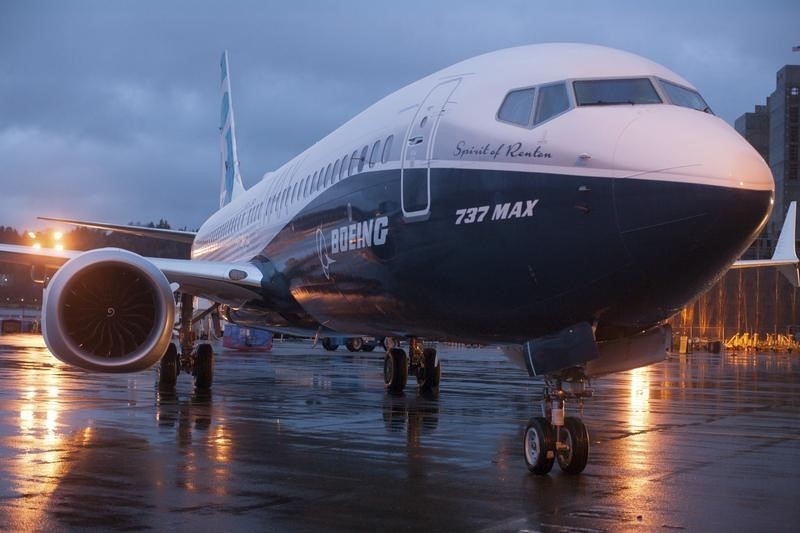(Reuters) -NASA again delayed Boeing (NYSE:BA)'s debut crewed flight of its Starliner capsule on Tuesday so engineers can spend more time evaluating a helium leak in the spacecraft's propulsion system, the agency said in a statement.
The launch, previously set for May 25, is now on hold, with the next possible launch date under discussion, the statement said.
"The team has been in meetings for two consecutive days, assessing flight rationale, system performance, and redundancy," NASA said. "There is still forward work in these areas, and the next possible launch opportunity is still being discussed."
The latest postponement of Starliner's debut mission with humans aboard comes as mission officials deepen their review of a helium leak in Starliner's propulsion system, which was discovered alongside an issue with the Atlas (NYSE:ATCO) booster shortly before the spacecraft was poised to launch from Florida on May 7. The Atlas rocket is built by United Launch Alliance (ULA), a Boeing-Lockheed Martin (LMT.N) joint venture.

Two NASA astronauts, Suni Williams and Butch Wilmore, are set to ride Starliner as its first crew to the International Space Station after years of delays, technical problems and two uncrewed demonstration flights - one unsuccessful in 2019 and a successful attempt in 2022.
With the two longtime test pilots aboard, the mission will mark Starliner's final benchmark test before NASA certifies the spacecraft for routine crewed missions to and from the ISS. SpaceX's Crew Dragon spacecraft, developed under the same NASA program, has been NASA's primary ISS taxi since 2021.
